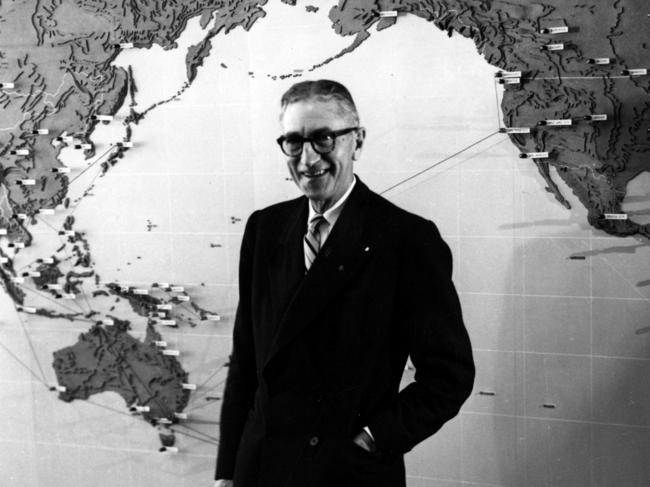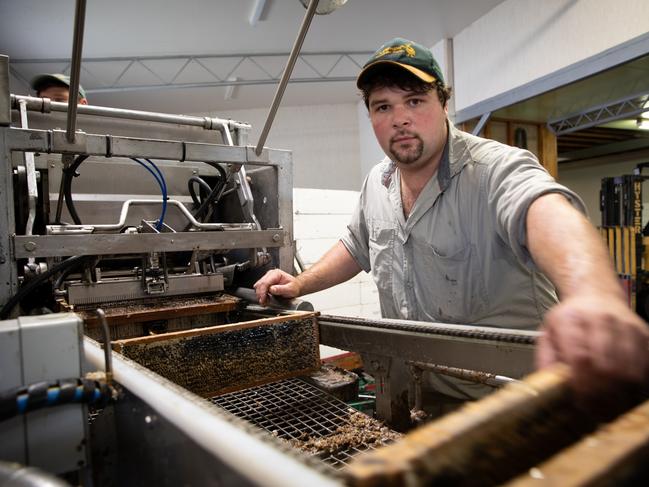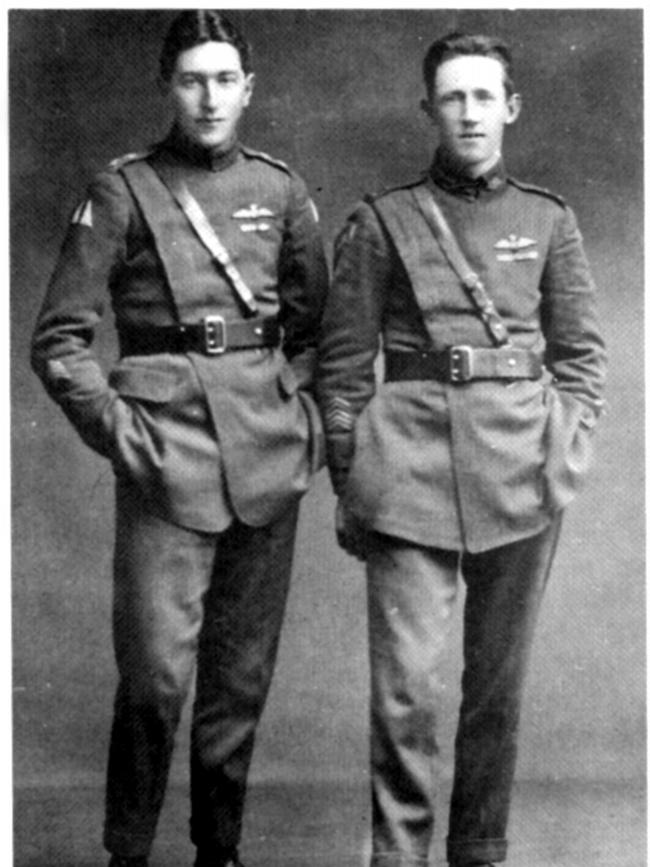Talking Point: Tribute to the Tasmanians who built hope from the horror of war
From a honey pioneer and a Wynyard matron to the founder of Qantas, Rebecca White honours those whose war service helped build legacies

Opinion
Don't miss out on the headlines from Opinion. Followed categories will be added to My News.
EVERY year, we pause to honour our service men and women — on Anzac Day and Remembrance Day.
This year’s Anzac Day was like no other, with COVID-19 forcing the cancellation of community commemorations, although we kept the spirit of Anzac Day alive, honouring them from home with a candle for Light up the Dawn. Not being able to mark Anzac Day in the traditional way gives this year’s Remembrance Day a special significance as we reflect on the horrors of war, honour the sacrifices of o service men and women and give thanks for the freedom they fought so hard to protect.
Of course, the horrors of war are well known. Along with death and destruction, war brings grief and illness and poverty. World War 1 was the first modern world conflict. More than 70 million people were mobilised and nine to 13 million died, as many as one-third with no known grave.
The Great War came at a great cost for Australia, with more than 60,000 service men and women never returning, from 416,000 who enlisted. Amid the horror, we should reflect on the hope war can occasionally bring. It is worth reflecting on some of the small glimpses of light World War I brought Tasmania.
More than 13,000 Tasmanians enlisted. For some, service meant sickness, injury, disability and death. But, for a small number, the experience was positively life changing, not just for them, but for generations of Tasmanians.

Despite being wounded, Mole Creek soldier Robert Stephens found an opportunity in Europe to study his hobby, beekeeping. Upon return, he purchased land and set up Tasmania’s first commercial honey business. A century on, R. Stephens Honey is one of our most enduring and successful exports. The Stephens family have been pioneers in the processing and sale of leatherwood honey.
Cygnet-born nurse Muriel Folder served in primitive conditions in Salonika, Greece, one of the little known battlefronts. At the end of the war she trained in intensive physiotherapy and massage in London. There is no doubt her nursing career in Tasmania, including as matron of Wynyard’s Spencer Hospital, benefited from this study.
Plasterer Arthur Record from Launceston was plucked by the authorities from the war front. His sculpting skills were in demand for patching up injured soldiers both in dental work and early facial plastic surgery. Lesser known is the kindness he showed to a German prisoner of war. Arthur later sponsored that man, Alfred Fleischer and his family, to emigrate to Tasmania. Alfred became a silversmith at the railways and his family were a much loved part of the Launceston Jewish community.
Few people know Qantas airlines has its origins with Tasmanian soldier Hudson Fysh. Flight was in its infancy but it didn’t stop Hudson from dreaming big. He gained flying skills in the closing years of the war and in 1920 set up the Queensland and Northern Territory Air Service (QANTAS). His legacy for this country has been enormous.

Lucy Pitman of Fern Tree was an experienced nurse at the Royal Hobart Hospital when she enlisted. Like Muriel, Lucy served in Salonika. Her hand written diary is held in the National War Memorial in Canberra. It forms part of a suite of educational activities prepared by the Tasmanian Museum and Art Gallery for students.
Tasmanians like Robert, Muriel, Arthur, Hudson and Lucy set the tone for men and women returning home — never underestimate human capacity. They are an example of what we can achieve despite the horrors of war. More than a century has passed since the guns of the Western Front fell silent on November 11, 1918.
As Australians continue to benefit from the service given in that war, we remember not only the sacrifice, but also the inspiration that can come with innovation, hope and passion. Lest we forget.
Lyons MP Rebecca White is Tasmanian Labor leader.


